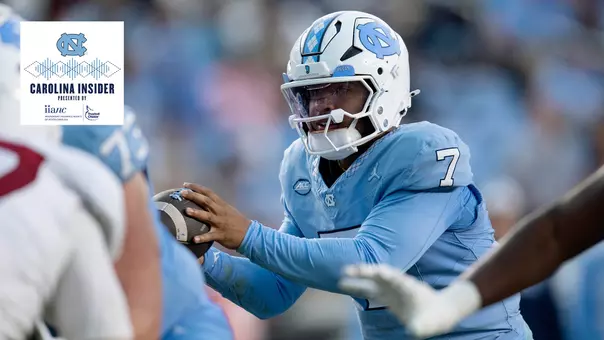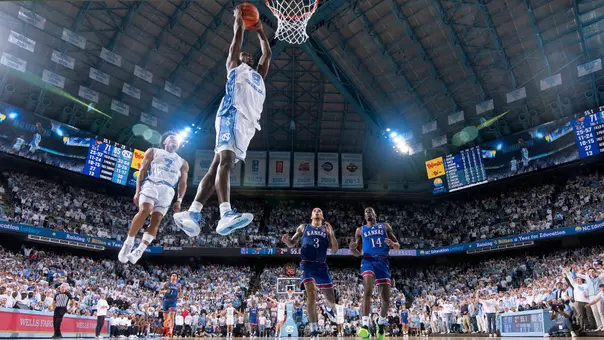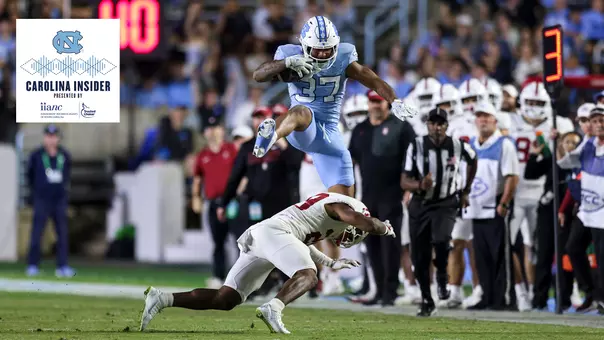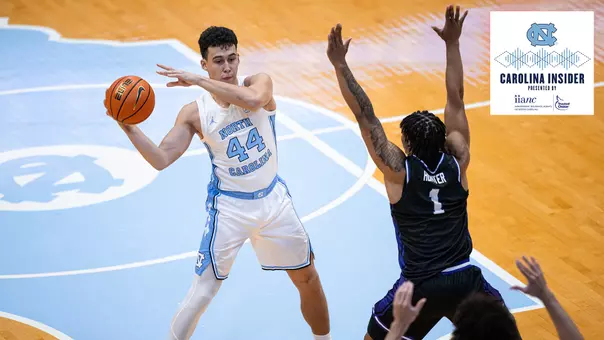University of North Carolina Athletics
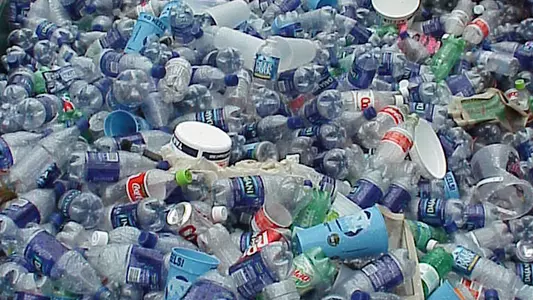
Sustainable Athletics At UNC: Wednesday
January 27, 2016 | General
Sustainable Athletics at UNC
GoHeels.com will look at an area of sustainability each day this week as the site highlights portions of the UNC Athletics Sustainability Report.
Monday: Introduction/Energy
Tuesday: Water
Wednesday: Recycling
Thursday: Transportation & Purchasing
Friday: Service
Recycling
Any event that draws crowds of thousands is bound to produce a lot of waste. UNC values its athletic success and its strong fan base. UNC Athletics has implemented the following programs in order to provide recycling services to vendors and event attendees.
In November 2003, the Office of Waste Reduction and Recycling (OWRR), the Athletic Department, the UNC Sustainability Coalition, the Student Environmental Action Coalition (SEAC), and Student Congress collaborated to approve a resolution that would implement recycling practices into athletic events. Once this resolution passed, recycling at athletic events became a focus at UNC Chapel Hill.
That fall, recycling began in the Chancellor's Box, which was made possible by the OWRR, the Athletic Department, and housekeeping event crews. At the same time, a cardboard recycling initiative began in conjunction with Classic Food Services, the stadium's food service company. SEAC assisted with setting up the containers and educating the vendors and OWRR, who worked after the game with cleanup crews to make these new procedures routine.
In the spring of 2004, two pilot programs took place in order to initiate plastic bottle and cup recycling in Kenan Stadium. The first occurred at the 2004 spring football game with an attendance of approximately 3,000 fans and limited concessions. The second occurred at the 2004 spring graduation with approximately 35,000 attendants and similarly limited concessions. From these events, OWRR learned how to arrange the bins to prevent contamination and make them more accessible to game attendees.
Currently, recycling and trash bins are located in Kenan Stadium along the concourse areas and at gate entrances, and ROTC members sort recyclables during the post-game clean up of seating areas. Vendors are provided with carts for their cardboard, and the Blue Zone catering kitchen and the lemonade stands help out by separating food waste for composting.
What is now known as Rameses Recycles, a tailgater recycling program, was initiated with the help of SEAC. The program further prompted an APPLES course in the fall of 2008 and an Institute for the Environment capstone course in the spring of 2010. Surveys were taken before the 2008 home game against Georgia Tech – fans overwhelmingly responded with demands for recycling availability before, during, and after the game. Volunteers set out to distribute color-coded bags. Clear bags were used for recyclable materials, such as glass and plastic, while the colored bags were used to gather trash. The color-coded bag system decreases the amount of litter at tailgating sites, which makes post game cleanup easier. It also minimizes storm water pollution and keeps campus orderly during home game weekends. To facilitate convenience for participants, tailgating fans simply had to leave the bags in their parking spaces after sorting trash from recycling.
In the spring of 2010, the program took the name Rameses Recycles. A follow-up survey demonstrated that the demand for football recycling had not been met. Using the color-coded bag distribution system, volunteers visit the following sites: Bowles Lot, Stadium Drive, Craige Deck, ACC Lot, Ram's Deck, S11 Lot, Dogwood Deck, and Cardinal Deck. Other sites may also be visited, depending on the number of volunteers available on a given game day. In the fall of 2010, Sport Clubs partnered with Rameses Recycles through its community incentive program. Athletes hand out the color-coded bags in the tailgate lots and decks while earning funds for their respective teams.
In 2011, the Environmental Affairs Committee (EAC), OWRR, and Athletics coordinated to provide recycling bins on the concourse during home basketball games at the Dean E. Smith Center. Previously, recyclables had been separated during the stand cleanup and bins were available at the entrances. Following the addition of concourse bins at basketball games, OWWR developed recycling guidelines for all UNC athletic venues; they are available for review and use on OWWR's website.
In the summer of 2013, OWRR and Athletics secured a sponsorship from Coke for the following fall football season. Coke generously provided new recycling bins in the shape of Coke bottles for Kenan Stadium. They also provided new green recycling bags with the Rameses Recycles logo on them to be distributed to tailgaters. From this sponsorship, OWRR was able to provide $100 Harris Teeter gift cards to a Rameses Recycling Tailgating Fan of the Week at each home game. An OWRR intern chose the winning fan based on his/her enthusiasm for recycling. The sponsorship was successful and was continued for the 2014 football season.
Since 2010, UNC has competed annually in the Game Day Challenge, a friendly competition between colleges and universities to see who can reduce and recycle the most waste from a single home football game. UNC received a Carolina Recycling Association Award in 2011 for its achievement in the Game Day Challenge. In 2012, fan education and engagement was a priority. EAC and OWRR promoted the event to fans via pre-game public service announcements, Union TV, Twitter, Facebook, a painted cube in the Pit, environmental and sports listservs, classroom announcements, and the Daily Tar Heel and other local newspapers. EAC also organized volunteers for the first “compost sweep,” which picked the compostable items out of the stands before the official ROTC cleanup.
In 2013, UNC participated in the first RecycleMania Basketball Game Day Challenge by performing a waste audit of a basketball game against Florida State University.
In 2014, UNC Athletics secured a partnership with Unifi, a North Carolina-based company that takes recycled plastic bottles and creates Repreve recycled fiber, which can then be manufactured into eco-friendly fabrics.

